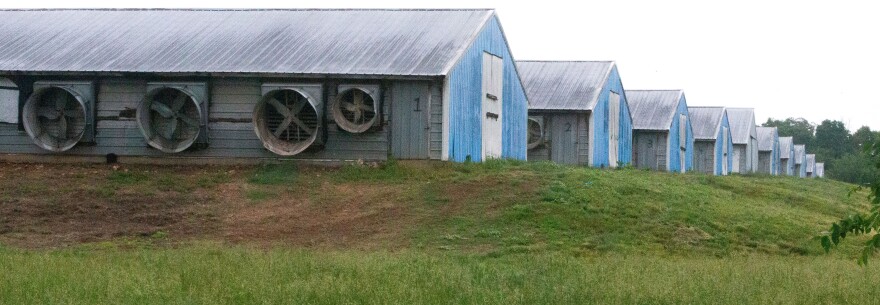
Oklahoma Court decision strengthens OWRB authority
In a back and forth 8-year old legal fight over a poultry farm and alleged water pollution in Delaware County, the Oklahoma Court of Civil Appeals upheld a judge’s ruling in support of the Oklahoma Water Resources Board.
High stakes for water law and groundwater governance
In a recent ruling, the Court of Appeals determined, “We find no underlying error, as the record contains substantial evidence confirming the OWRB sufficiently considered relevant evidence and complied with applicable procedures to, ultimately, approve the Temporary Groundwater Permit. Accordingly, the trial court’s Order is affirmed.”
Judges delivered that ruling in direct language. They wanted every stakeholder in Oklahoma’s water policy community to understand that this judgment reinforced OWRB authority. Environmental attorneys watched this case closely because the outcome influences future rural groundwater conflicts.
Case history connects back decades
It was a case that drew statewide interest as part of Oklahoma’s lawsuit nearly 20 years ago against the poultry industry for pollution of the Illinois River. The lawsuit was brought after Chau Tran and Donna Nguyen opened a poultry farm in 2017 and sought 90-day groundwater permits from the OWRB. The farm was among many new farms created after Simmons Foods announced the opening of a new chicken processing facility in Gentry, Arkansas. That expansion wave changed the entire poultry farming footprint. Rural neighbors began organizing because they feared increased water stress and water contamination risk.
Rural neighbors attempt full intervention
Caught by surprise, neighbors Andrea and Gerarld Cochran, Louanna Cochran, William Cochran, Melissa Foreman, Suzanne Maupin and Viola Powell filed suit in Delaware County District Court to stop the issuance by the state agency. They protested the application which asked the OWRB to withdraw and use 50.00 acre-feet of groundwater for the concentrated poultry feeding operation. Legal filings described neighbor frustration and emotional distress. They wanted the state to protect their wells, rural peace and surface runoff safety.
Early injunction shifts legal pathway
In September 2022, District court Judge Barry Denney granted a temporary injunction against the OWRB and entered an order reversing and remanding the OWRB’s grant of the Temporary Permit due to the agency’s “failure to consider potential water quality impacts prior to permit issuance.” The court determined the OWRB failed to involve or refer the matter to the Oklahoma Department of Agriculture, Food, & Forestry (ODAFF). That moment changed momentum because it forced a forced procedural reset inside a sensitive environmental regulatory structure.
Appeals turn into strategic test of jurisdiction
Tran and Nguyen appealed to the Supreme Court but the case was dismissed as premature and the matter went back, not to Delaware County District Court, but to the OWRB where an evidentiary hearing occurred in April 2023. During the hearing, an OWRB Environmental Specialist admitted the OWRB had not investigated allegations the poultry feeding operation led to water pollution. The testimony also included a claim from Louanna Cochran that she personally witnessed chicken feathers and chicken litter in the water runoff onto her land. That testimony shifted narrative leverage because neighbor claims became firsthand rather than theoretical.
Final 2024 outcome gives OWRB advantage
In July 2023, the hearing examiner recommended approval of the temporary permit which led to a third petition by the protesting neighbors who filed it again in Delaware County District Court. They alleged the OWRB had not sufficiently considered the occurrence of waste by pollution as required by statute. Oral arguments occurred and in October 2024, a trial court issued an order affirming the OWRB’s order. The judge ruled the issuance of Permit No. 2017-583 satisfied the statutory requirement and was “otherwise free from prejudicial error.” The ruling prompted the appeal. Attorneys saw this escalation pattern as a full stress test of procedural compliance.
Judge reinforces statutory jurisdiction boundaries
It led to the Court of Appeals decision in which the judges determined that the determination of “waste by pollution” is within the exclusive jurisdiction of the ODAFF and that “the OWRB was precluded from looking at that issue.” That statement clarified future legal lanes. Regulators prefer bright jurisdiction lines. This case now anchors those lines in case law.
Related ruling increases pressure on Ag Department
In a related ruling made in July 2024, another Delaware County District Court judge ruled the state Ag Department had failed and ignored its duty to protect clean water after the Tulsa-based Indian Environmental Law Group filed suit for the Spring Creek Coalition. That ruling triggered additional policy debate inside both Oklahoma Energy water regulatory circles and rural environmental networks. The judge determined the state agency had ignored its duties. “There is no evidence the Department gave any consideration to the significance of the potential impact the facilities, each containing upwards of 300,000 chickens, may have on the public environment or the peace and enjoyment of property owned by contiguous landowners,” the judge wrote.

